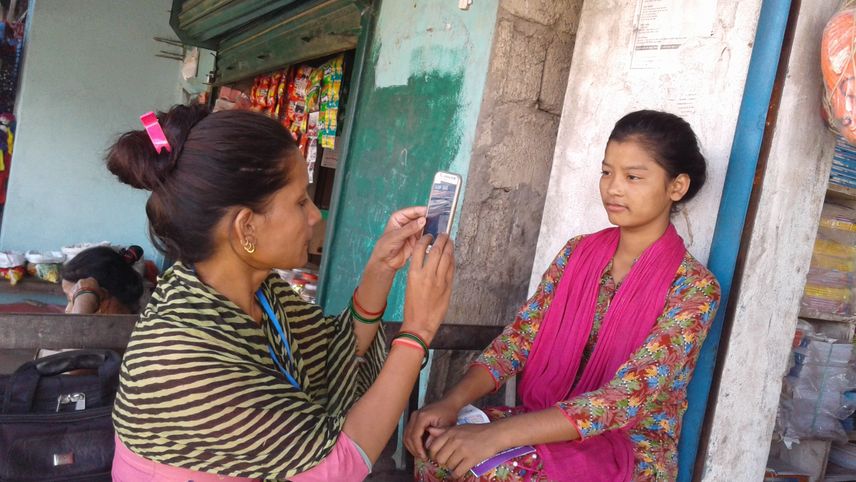Nepal / Health Insurance
Enrollment using mobile app (c) Subash Kumar Lamsal
The scheme in context
Social health insurance was introduced by the Government of Nepal in April 2016. In 2017, the Health Insurance Board (HIB) of Nepal was formed following the enactment of the Nepal Health Insurance Act, which mandates that every Nepali citizen be covered by a social health insurance scheme. Since its initial roll-out in three districts, social health insurance has been gradually expanded and is now available in 76 out of 77 districts of Nepal.
How the scheme uses openIMIS
IMIS, adapted from the Tanzania and Cameroon implementations, was used from the very beginning to manage all core business processes of the insurance scheme, from beneficiary management to claims adjudication. The Health Insurance Board has been using openIMIS since the master version became available in 2018.
openIMIS has greatly enhanced the implementation of social health insurance in Nepal. Complicated processes, particularly around enrollment and claims processing, have been made easier. The availability of Android-based apps for enrollment has meant that enrollment assistants can go door to door to bring households into the scheme. A web-based claims entry and adjudication module significantly diminishes paper-based transactions and reduces paperwork for health facilities. This has enabled the Health Insurance Board to achieve a rapid rate of expansion.
The Deutsche Gesellschaft für Internationale Zusammenarbeit (GIZ) and the Swiss Tropical and Public Health Institute provide technical assistance to the Health Insurance Board for the customization and implementation of openIMIS.
Interoperability
The primary focus of interoperability with openIMIS in Nepal has been around the electronic submission of claims via Electronic Medical Record Systems. There are a few service providers that use EMRs in their hospitals and work is currently underway to design standard approaches to allow them to submit claims electronically. An integration of openIMIS and Bahmni (used in 4 health facilities in Nepal) has been implemented, and is used by Bayalpata Hospital to submit claims automatically to openIMIS. Other hospitals and EMR systems are also adapting their APIs to FHIR R4 to enable digital claiming to openIMIS.
The openIMIS deployment in Nepal also uses resources from the interoperability framework of the Ministry of Health and Population, namely the health facility registry.
Full project scope
To learn more about the implementation of openIMIS, including the configuration and system set up, visit the wiki page.
